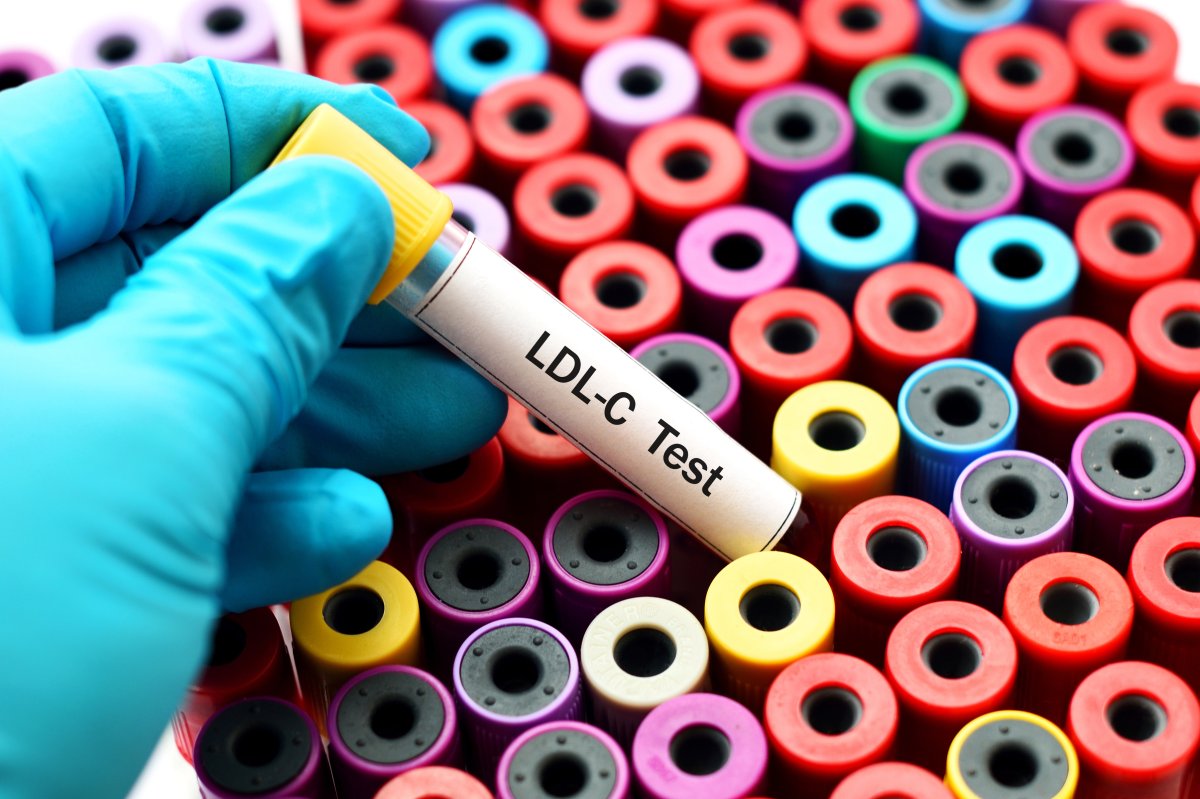We’ve all been told good things about good cholesterol, but a new study suggests high amounts of high-density lipoprotein (HDL) (or good) cholesterol may not be healthy for post-menopausal women.

The research, which was recently published in the journal Arteriosclerosis, Thrombosis, and Vascular Biology, notes that HDL cholesterol usually protects the heart by moving low-density lipoprotein (LDL) or bad cholesterol away from your arteries, but this may not be the case for women post-menopause, Live Science reports.
Study author Samar El Khoudary, an epidemiologist at the University of Pittsburgh’s Graduate School of Public Health, tells Global News the findings are still considered complex.
“High total HDL cholesterol in post-menopausal women could mask a significant heart disease risk that we still need to understand,” she says via e-mail. “Clinicians need to take a closer look at the number and size of HDL particles to accurately determine the risk of cardiovascular disease for older women.”
READ MORE: Most women eventually develop diabetes or high blood pressure. But you don’t have to
The study
Further research on the topic needs to be done, especially as women enter menopause, El Khoudary adds. “They are subjected to several physiological alterations that could collectively increase their cardiovascular disease risk later in life.”
To conduct the study, El Khoudary and her team looked at data from almost 1,400 women in the U.S. between the ages of 45 and 84 who were part of another study on atherosclerosis (when plaque builds up inside your arteries), Live Science reports. Women were either post-menopausal or perimenopausal.
WATCH: Swapping animal protein for plant protein can lower cholesterol

“Large HDL particles are linked to an increased risk of atherosclerosis close to menopause. During this time, the quality of HDL may be reduced, increasing future women’s risk to develop atherosclerosis or cardiovascular disease. This is a hypothesis that we still need to assess,” she continued.
But what does this mean for the average woman entering menopause? For starters, El Khoudary says we should be more mindful of our diets.
“The menopausal transition is a critical period of women’s lives when they are subjected to an increase in their bad cholesterol, shift in fat deposition from peripheral to central abdomen and changes in vascular health…all can significantly increase women’s risk for (cardiovascular disease),” she continues. “Women and their health care providers need to be aware of these risks so that early intervention strategies can be adopted before reaching menopause.”
Good and bad cholesterol
Registered dietitian Shahzadi Devje of Toronto says these types of cholesterol are “good” and “bad” when we’re talking about cardiovascular risk, but it is not always clear-cut.
“We’re realizing that not all cholesterol is created equal and we must read beyond the numbers from a basic blood lipids test,” she says. “We commonly hear that a high level of LDL in your blood increases your risk of plaque formation inside your arteries, and this raises your risk of a heart attack. Conversely, the lower your LDL, the lower your risk of having a heart attack. This is a simplistic and incomplete picture.”
READ MORE: Reality check: Are eggs really healthy?
Instead, she adds it’s not the total amount of LDL cholesterol that should be of concern but the type and size of the particle. “Research indicates that those whose LDL particles are predominantly small and dense have a significantly greater risk of heart disease, whereas the large and fluffy type of LDL may actually be protective. It’s a similar story with HDL cholesterol.”
Good cholesterol food
But good and bad cholesterol is also almost always related to food, she says.
“People often think that you can get high cholesterol by eating foods high in dietary cholesterol. For most people who are healthy, dietary cholesterol has an insignificant impact on your blood cholesterol levels. If you have diabetes and are at higher risk for heart disease, you should consult with a registered dietitian for support.”
She adds if you want to include healthy fats in your diet, lower the amount of saturated fat you are consuming. Foods low in saturated fat include beans, lentils, tofu, nuts, seeds and fatty fish rich in omega-3 like salmon and mackerel.
“Avoid trans fat,” she continues. “This is commonly found in: fried foods, chips, donuts, crackers, hard margarines and baked goods. Always check the label and keep a look out for ‘hydrogenated’ or ‘partially hydrogenated fat.'”
READ MORE: Reality check: Is too much ‘good’ cholesterol bad for you?
But it’s not just food that impacts HDL cholesterol levels; it’s also weight.
“Strive for a more Mediterranean-style eating pattern…a diet rich in plant-based whole foods and minimally processed foods,” she says. “Include movement in your day and build up your activity levels gradually. Being physically active offers a myriad of tremendous health benefits — beyond boosting HDL levels and improving heart health.”




Comments